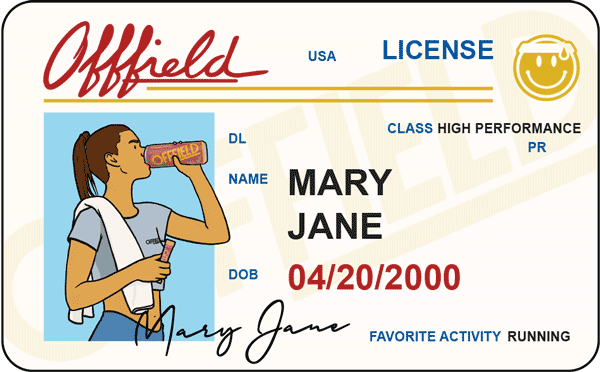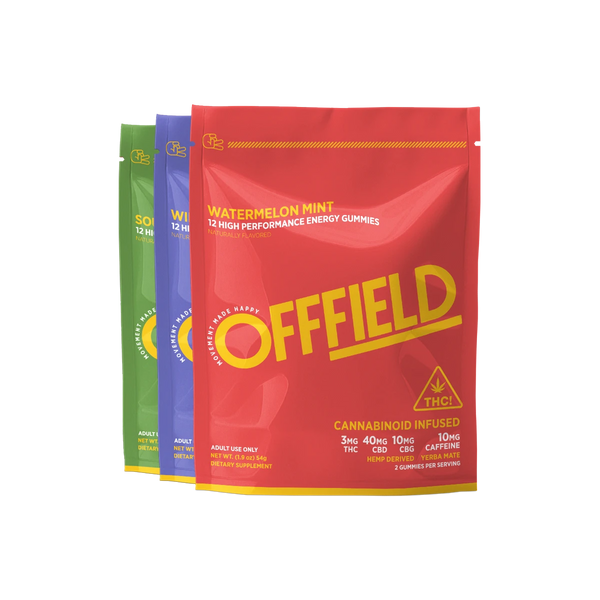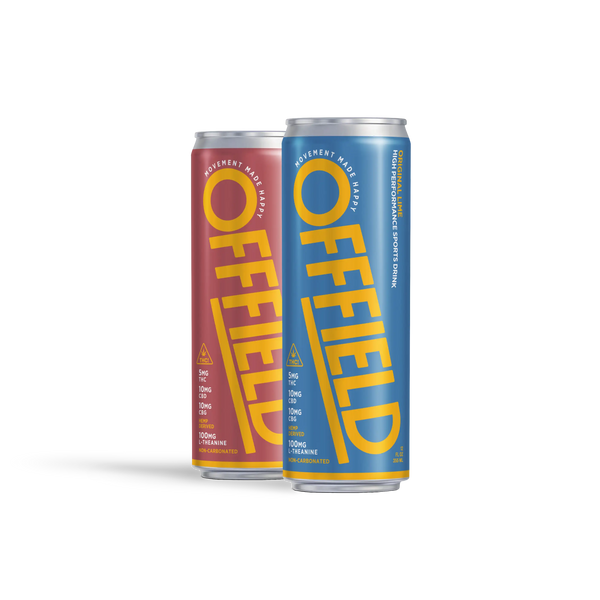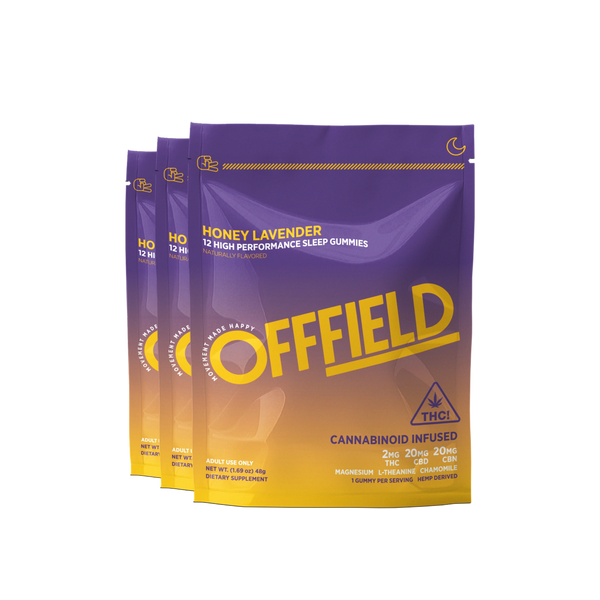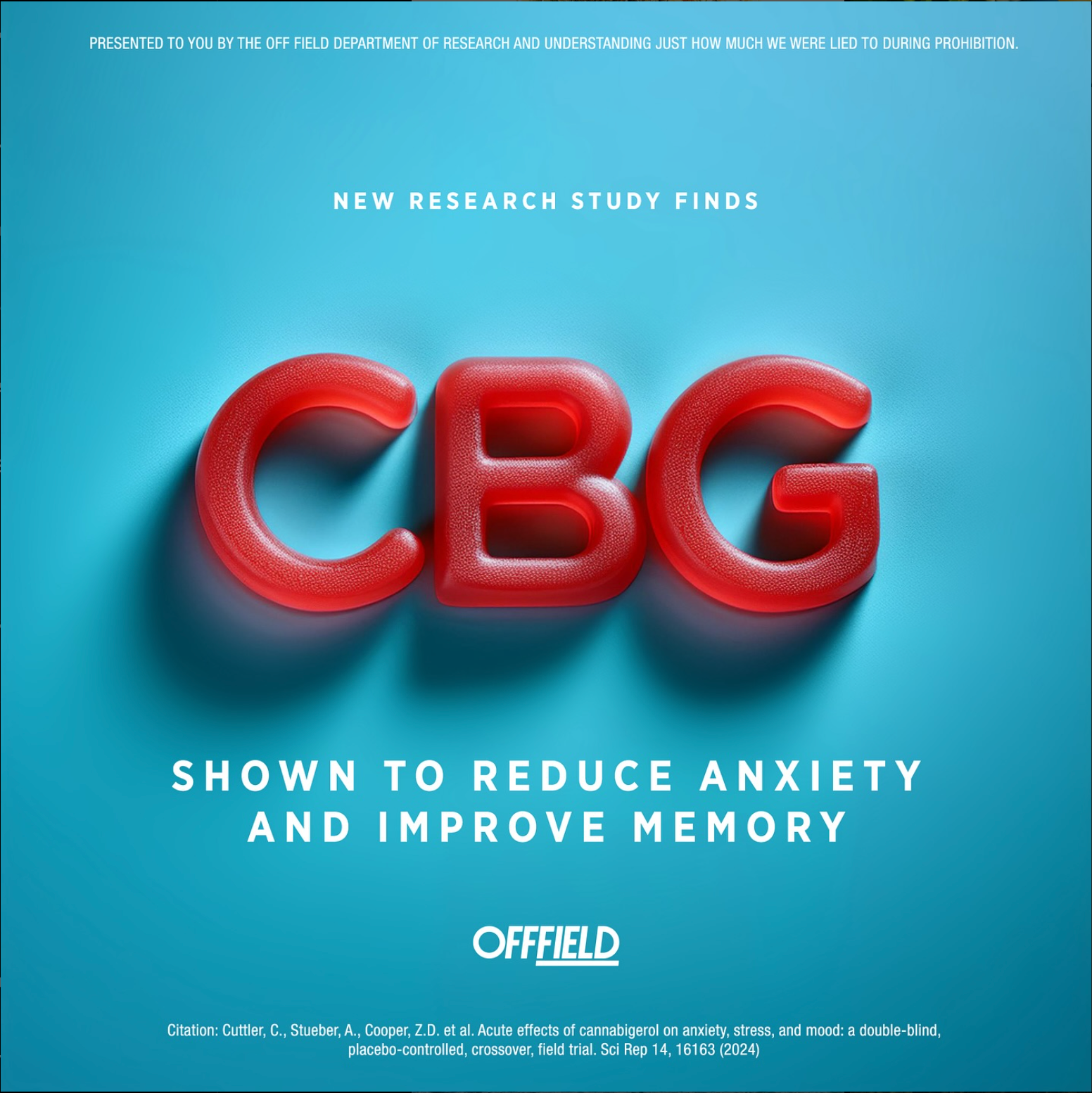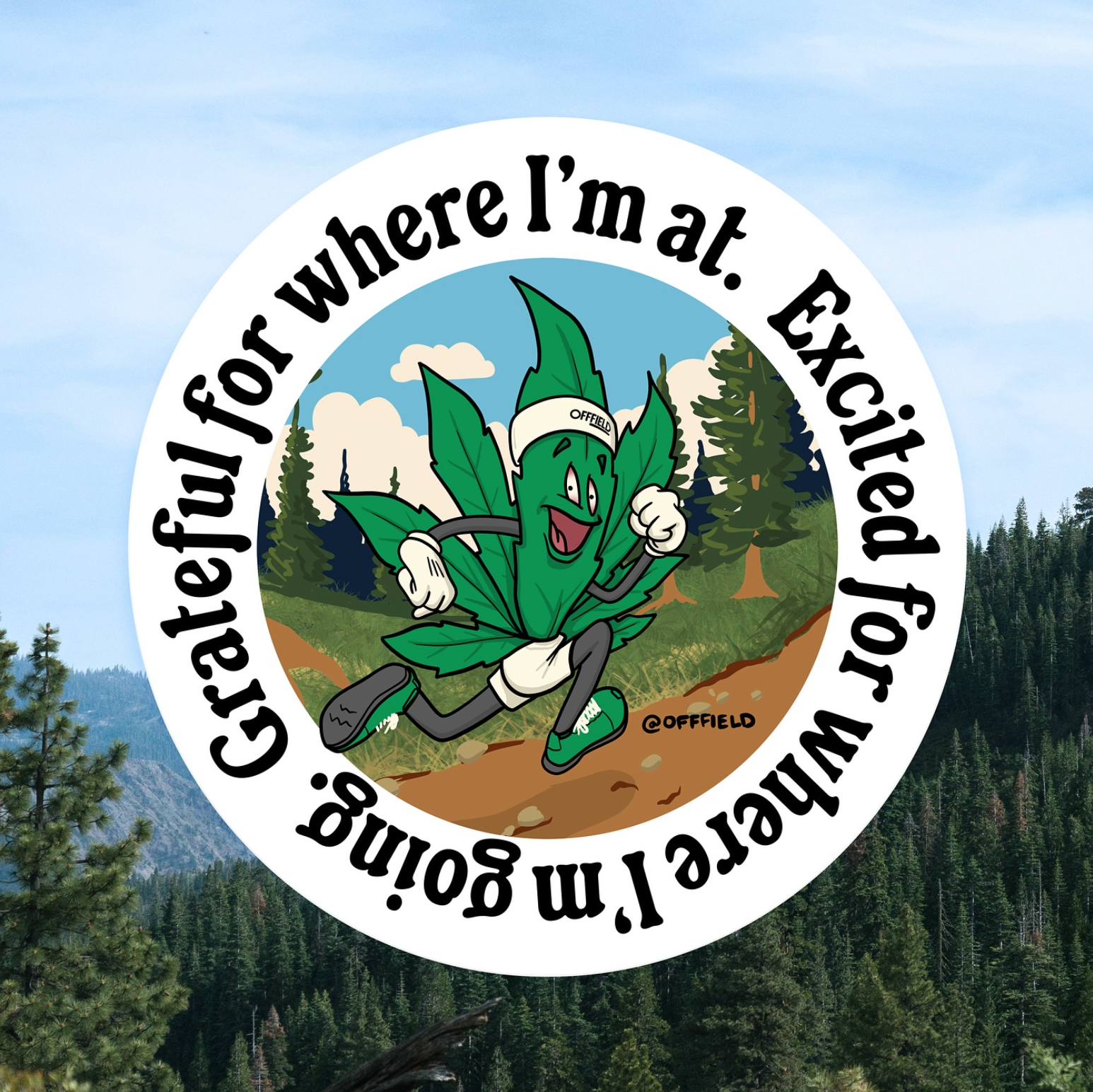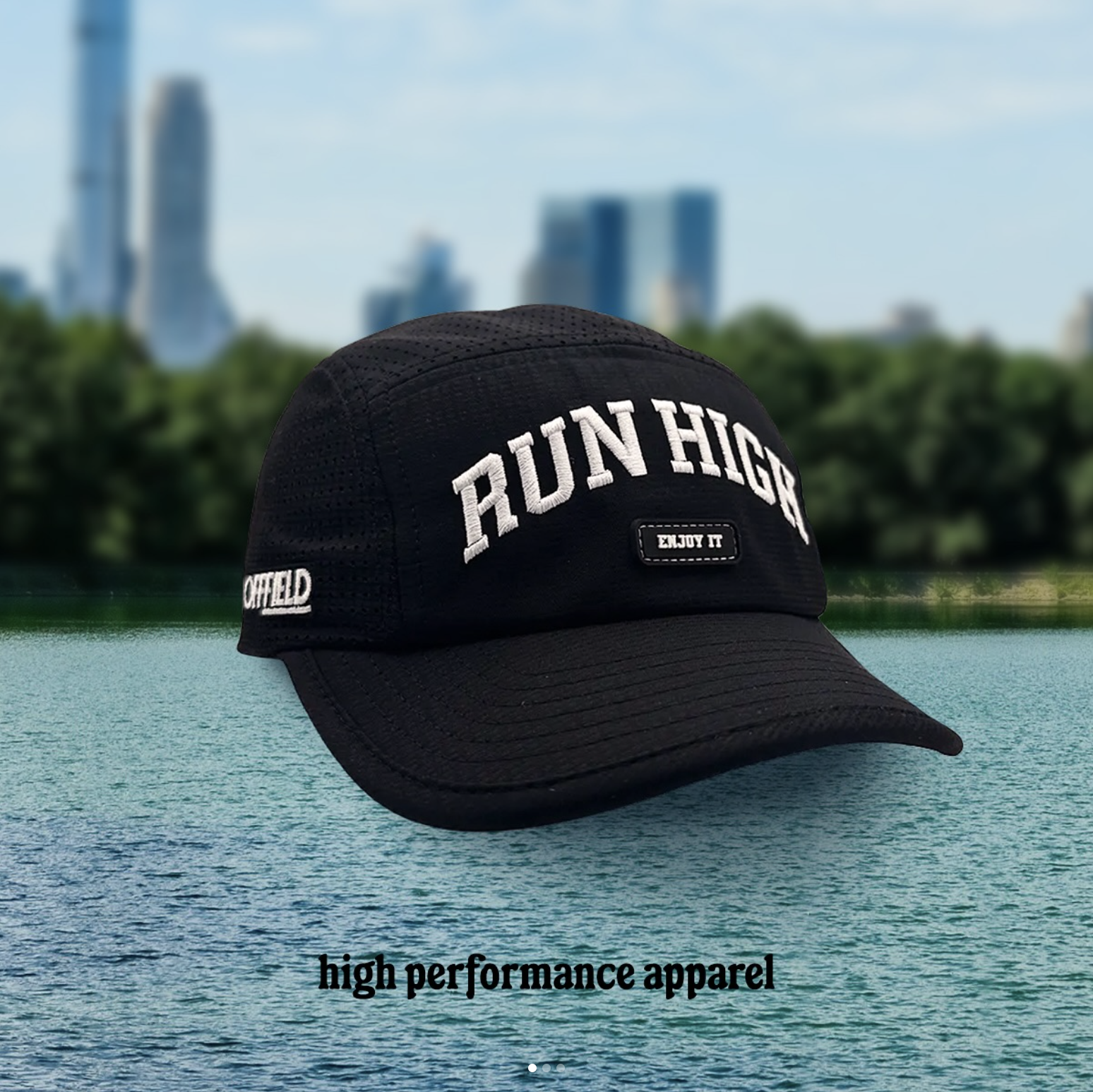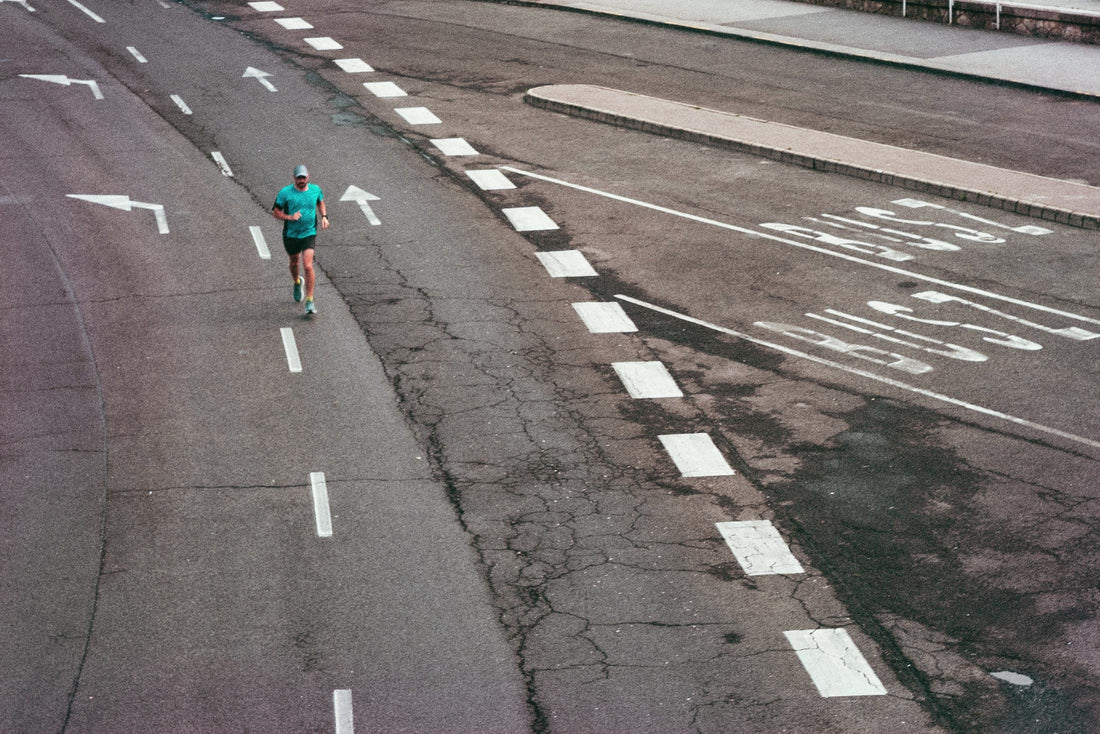
Chasing the High
Researchers found when workouts are too hard or too easy, people quit. But when cannabinoids make exercise feel better, people stick with it.
You hear a lot of people say “go hard!” or “embrace the suck!” Turns out those people actually enjoy it. If you’re not one of those people, you’re going to want to hear this.
Scientists wanted to know why some people keep exercising for years while others quit. So they studied 273 gym goers. They found something surprisingly simple: people who enjoy their workouts exercise more often, stick with it longer, and turn it into a habit. It wasn’t about willpower. It was about how the workout feels. When exercise feels too hard, people want to stop. When it feels too easy, people get bored. But when it feels challenging and doable, people enjoy it and they keep coming back for more. In fact, about 9 out of 10 people naturally choose an intensity that already feels right for them. The big lesson: if it feels good, you keep doing it.(1)
Now here’s where it gets really interesting. Another study looked at 49 regular cannabis users who went on two runs: one with cannabis and one without. The runners said the run felt more enjoyable when cannabis was involved. The difference wasn’t small or random: it was statistically meaningful (p = 0.004), which means it was very unlikely to be an accident. They also reported more positive feelings, less negative feelings, and more “runner’s high” sensations during the cannabis run. They didn’t run faster. They felt better doing it.(2)
A third study found that 80% of cannabis users mix cannabis and working out, with 70% saying it increases enjoyment, 78% saying it boosts recovery and 52% saying it motivates them.(3) Dispelling the myth that it makes you lazy.
Why does this matter? Your body already has a built-in system called the endocannabinoid system (ECS). One of its jobs is to help control mood, pain, stress, and enjoyment. When you exercise, your body releases natural cannabinoids (like anandamide) that help create the famous runner’s high.(4) Cannabinoids from plants work on this same system. So when this system is supported, exercise can feel better, more fun, and less uncomfortable.
This is by no means saying that cannabis solves all our problems. What this means is that cannabinoids, when administered correctly to fit your needs can create the consistency so many of us are looking for.
Put it all together and the story is simple:
When exercise feels better, people do it more.
Enjoyment isn’t a bonus. It’s the engine. OFFFIELD isn’t about forcing your body to suffer. It’s about helping your body and brain work together so movement feels good and when it feels good, you keep showing up.
That’s how consistency is built. That’s how longevity happens. And that’s how performance actually lasts.
Footnotes / Sources
-
De Meester et al., 2022 — “Does intensity matter for exercise enjoyment and adherence?” (Study of 273 gym members showing enjoyment strongly predicts habit, frequency, and long-term consistency.)
-
YorkWilliams et al., 2023 — “Cannabis and Exercise: Real-World Running Study” (49 runners, cannabis condition showed significantly higher enjoyment, p = 0.004, more positive affect, less negative affect, more runner’s high.)
-
Front. Public Health, 2019 — “The New Runner's High? Examining Relationships Between Cannabis Use and Exercise Behavior in States With Legalized Cannabis”
-
Raichlen et al., 2012 / 2013 — Studies showing that anandamide (an endocannabinoid) rises during exercise and is a key driver of the runner’s high, not just endorphins.

The rise of GLP-1's have changed our culture's relationship with obesity. It's never been more confusing. Every TV commercial is for Ozempic or Mounjaro. Every celebrity is now priding themselves on losing weight and looking... different. At OFFFIELD, we're trying to change our relationship with our health by finding joy in it. Science backed and proven.
With decriminalization of cannabis research, we're also learning why cannabis users have such lower rates of obesity than non-users. With far fewer side-effects and unknowns than GLP-1's.
A study by Cavalheiro and colleagues explores an intriguing possibility: could phytocannabinoids, the biologically active compounds in Cannabis sativa, offer a novel tool to combat the metabolic dysfunction of obesity by harnessing their anti-inflammatory and antioxidant potential?
Why this matters
For athletes and active folks, metabolic resilience is just as important as strength or endurance. A system bogged down by chronic inflammation won’t recover as fast, won’t adapt as well, and won’t take performance gains to the next level. If cannabinoids can support metabolic re-settling, for example reducing waist circumference, improving lipid profiles, and improving cellular inflammation signals, then the conversation shifts from “weed and weight gain” to “smart use of hemp-derived biology to support leaner, fitter terrain.” Ok, that's a mouthful but you get it.
What the review found
This paper is a narrative review, meaning the authors pulled together existing preclinical and clinical data rather than generating new experimentation themselves. Key take-aways:
Epidemiological data suggest that cannabis users on average have lower body mass index (BMI) and waist circumference than non-users. This is counter-intuitive given the “munchies” narrative, yet starts to hint that underlying metabolic processes may be altered.
Specific phytocannabinoids (notably Δ9-tetrahydrocannabivarin (THCV), Δ9-tetrahydrocannabinol (THC) and cannabidiol (CBD)) were discussed for their distinct pharmacological profiles.
The authors link obesity’s pathophysiology to endocannabinoid signalling, adipose tissue inflammation, oxidative stress and neuro-metabolic regulation and suggest that modulating the cannabinoid system may rebalance some of these derangements.
Regarding clinical outcomes, some small studies indicated reductions in triglycerides, increases in HDL cholesterol, increases in adiponectin (an insulin-sensitive hormone), and reductions in waist circumference and fat mass.
Mechanistic angles: how might it work?
The review details a few mechanistic pathways worth your attention:
Endocannabinoid system (ECS) modulation: The ECS, via CB1 and CB2 receptors among others, influences appetite, lipogenesis (fat creation), adipocyte differentiation and inflammation. Over-active CB1 signalling in adipose tissue and liver has been implicated in obesity and insulin resistance. By contrast, modulation (or antagonism) of CB1 might yield metabolic benefit. The phytocannabinoids discussed may alter this signalling.
Anti-inflammatory and antioxidant actions: Obese adipose tissue secretes pro-inflammatory cytokines, generates oxidative stress and drives systemic metabolic harm. CBD and related compounds have demonstrated anti-inflammatory and antioxidant effects in pre-clinical settings. By reducing adipose inflammation the downstream metabolic burden could decrease.
Adipocyte and mitochondrial effects: Some evidence (primarily in animal models) suggests cannabinoids influence adipocyte function, reduce lipogenesis, increase mitochondrial activity, and influence browning of fat (shifting white fat to more metabolically active beige or brown phenotype) though this remains speculative for humans.
Neuro-metabolic regulation: Appetite, reward, energy expenditure and glucose homeostasis are all subject to central nervous modulation. Cannabinoids may influence these pathways though here the risk of psychoactive effects or undesired CNS impact is higher.
So what does this mean for an active, performance-minded person?
The anti-inflammatory, metabolic-support potential of cannabinoids means they might complement recovery protocols. Beyond traditional recovery strategies like sleep, nutrition, and mobility, hemp-derived cannabinoids may offer another lever for addressing adipose (especially visceral fat) inflammation, thereby improving systemic recovery.
Waist circumference is one of the more relevant markers: it’s a proxy for visceral fat and metabolic risk, and was among the anthropometric measures improved in some studies.
The idea isn’t that cannabinoids are a “magic bullet” for fat loss; rather, they may serve as a metabolic adjunct, supporting the body’s ability to respond to training, nutrition and lifestyle interventions more effectively.
Key take-home statements
Phytocannabinoids from Cannabis sativa show promising metabolic and anti-inflammatory profiles relevant to obesity and visceral fat dysfunction.
Human observational data suggest cannabis users have lower BMI and waist circumference. Small intervention data suggest improvements in triglycerides, HDL, adiponectin and fat distribution.
Mechanistically, the pathways of greatest interest include endocannabinoid system modulation (especially CB1 and CB2 receptors), adipose tissue inflammation, mitochondrial and adipocyte function, and systemic energy-balance regulation.
For us, these findings provide a credible scientific anchor to position cannabinoid sports products, especially when combined with exercise, recovery optimization, and nutrition.
Final thoughts
This review by Cavalheiro takes the conversation around cannabis and metabolism out of the “stoner myth” zone and into serious scientific terrain. For OFFFIELD’s mission, blending performance, recovery and innovation, it offers a strong bridge between nature-derived compounds and athlete-centric outcomes. The key is to turn the promise into educated, realistic, transparent messaging and product design that complements, not replaces, the fundamentals of training, nutrition, recovery and sleep.
In short, cannabinoids aren’t a shortcut to fat loss, but they may become a smart adjunct tool in the fitness toolbox.
Study: C avalheiro EKFF, Costa AB, Salla DH, da Silva MR, Mendes TF, da Silva LE, da Rosa Turatti C, de Bitencourt RM, Rezin GT (2022) Cannabis sativa as a treatment for obesity: from anti-inflammatory indirect support to a promising metabolic re-establishment target, Cannabis and Cannabinoid Research 7:2, 135–151, DOI: 10.1089/can.2021.0016.

Imagine this: Your experience with cannabis is way different then what older generations told you it would be like.
It turns out, you’re not alone. A big new study found that people who use cannabis are more likely to be active, especially in states where it’s totally legal.
Wait, What Was in this Study?
Researchers looked at health data from thousands of adults across the U.S. between 2016 and 2022. They wanted to know: Is there any connection between cannabis use and physical activity?
Short answer: Yep. And it’s a good one.
5 Fast Facts from the Study
🧠 More Movement
From 2016 to 2022, more people started getting active AND more people started using cannabis. The two went hand in hand.
🏃 Cannabis Users Were More Likely to Exercise
People who used cannabis were 24% more likely to engage in physical activity compared to non-users.
🌱 Legal States = More Movement
The connection was even stronger in states with legal recreational cannabis. Users there were 47% more likely to be active.
💪 Chronic Illness? Cannabis Might Help
Usually, people with medical conditions are less active. But among those who used cannabis, that drop-off wasn’t as big.
📈 This Isn’t a Fluke
Researchers controlled for age, income, and health—and the link still showed up.
Quotes from the Study (with Human Translation)
"Cannabis use was associated with greater odds of physical activity."
Translation: People who use weed move more.
"The association was stronger in recreational-legal states."
Translation: When cannabis is easier to get, people are even more likely to be active.
"Among individuals with chronic conditions... cannabis use may mitigate this disparity."
Translation: Cannabis might help folks with pain or health challenges get back out there.
So What Does This Mean for You?
Here’s the deal: OFFFIELD was created on the idea that movement can be joyful, even euphoric, and that cannabinoids, when used intentionally, can support that feeling.
This study? It’s a giant green checkmark on what we’ve believed from the beginning.
With OFFFIELD, you can:
Run Happy : not punishing.
Train Focused : not foggy.
Recover Deeply : not sluggish.
Enjoy the Process : not just the progress.
A Note to the Skeptics (or Your Aunt Becky Who Thinks Cannabis = Couch)
Science is evolving. What we’re seeing now is that cannabis isn’t just about chilling on the couch. It’s showing up in races, rides, hikes, and runs.
And with the right dose, the right blend, and the right mindset? It’s not a shortcut, it’s a tool for better training, better recovery, and better connection to your body.
Try It for Yourself
If you're 21+ and live in the U.S., OFFFIELD is here to help you move smarter and smile bigger. We’re science-backed, athlete-approved, and here to bring joy to every workout, one gummy, sip, or mile at a time.
Happy trails. And hey, move how you like.

